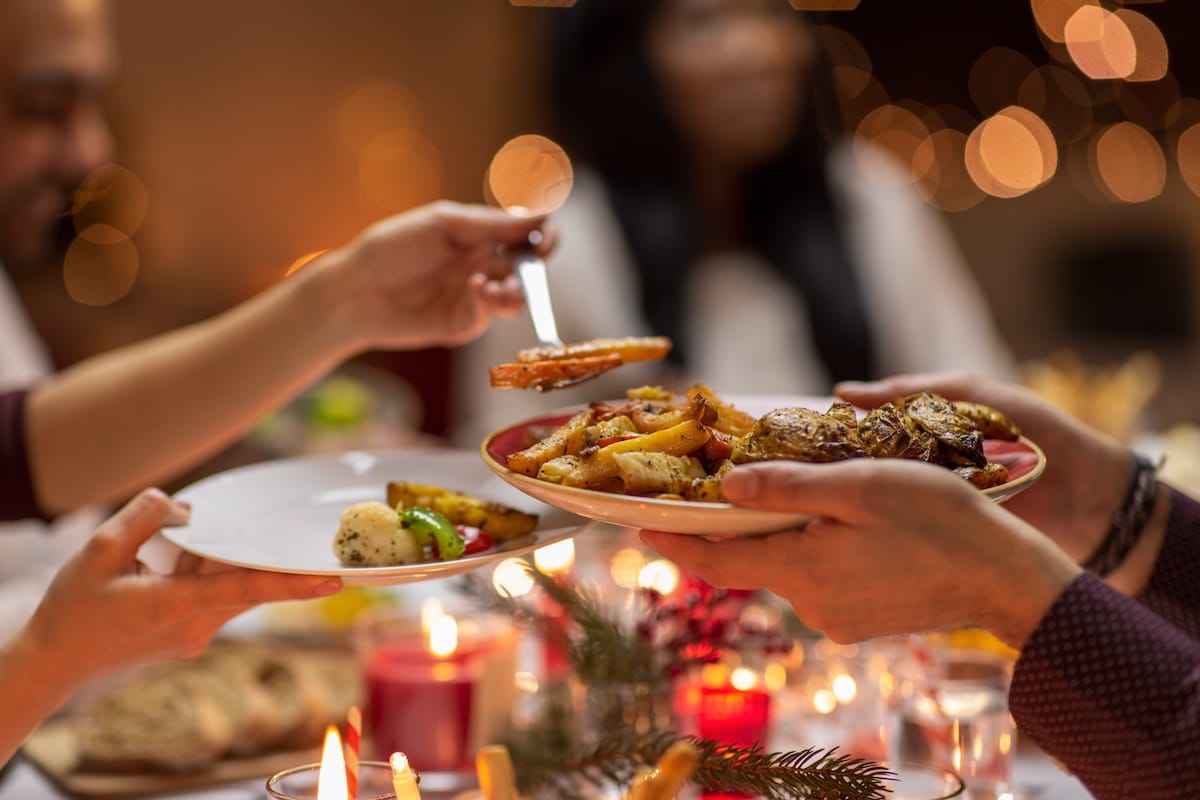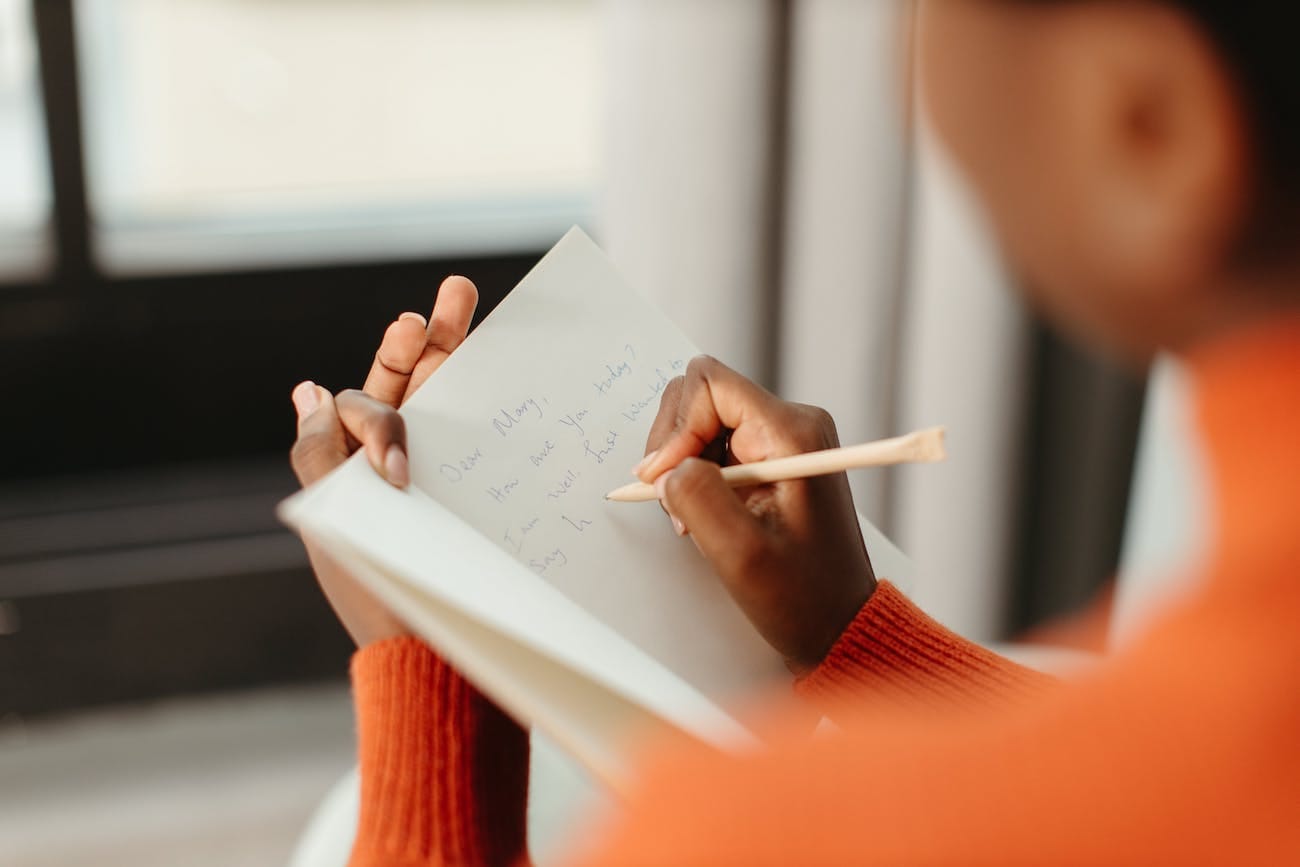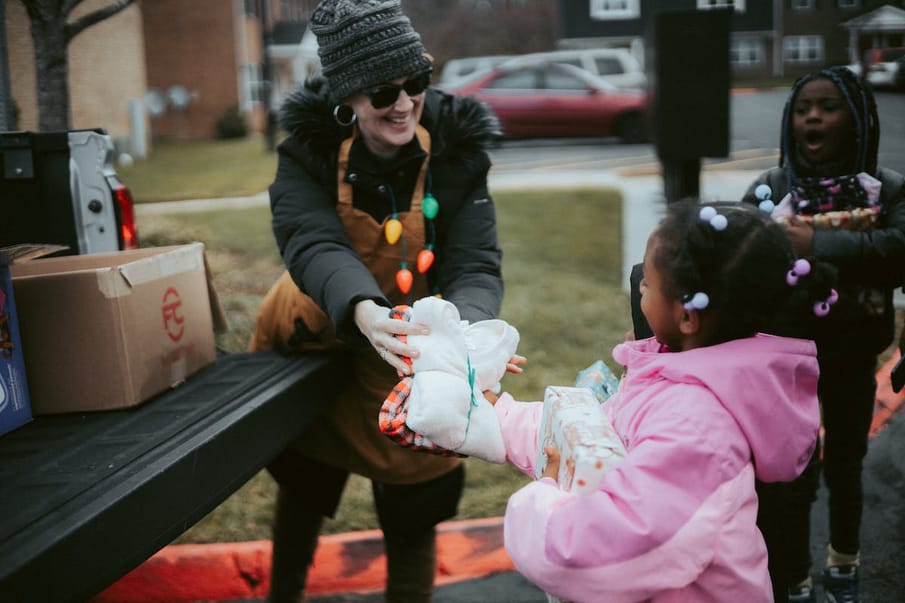What if, this Christmas, you did something totally different? Kathryn Wheeler shares her experience of volunteering on Christmas Day, and the things you can do to make a lasting impact this year
What do you write in a Christmas card to someone you’ve never met? It’s a question I asked myself last December, when I was writing to the strangers I would be spending Christmas Day with.
Volunteering at Christmas was something I’d always wanted to do but, for some reason or other, each year that came around didn’t feel quite right. Following the Covid-19 lockdown, time with family felt more precious than it had been before, and returning to ‘normal’ at a time of year when ‘normal’ means re-enacting long-held traditions and doing the same things with the same people you always do them with, was a particular comfort.
But 2022 felt different, again. While the beginnings of the cost of living crisis hit us all, it affected some more than others. According to Statista, in 2022, around 11 million people in the UK were living in relative poverty, with that number increasing to 14.4 million when housing costs are considered. A government report found that, from October 2021 to September 2022, 25% of UK adults felt lonely all the time or some of the time. When faced with those realities, you can feel hopeless about what to do. Which is what led me to sit in front of two blank Christmas cards one evening in December.
The Oxford Christmas Lunch is open to anyone who wants to come together to enjoy a traditional Christmas meal. Attendees include refugees, the elderly, those with disabilities and severe mental illnesses, families living in food poverty, the homeless (and their dogs), or simply those who would rather not celebrate Christmas alone. But what makes this Christmas lunch really special is that volunteers aren’t just there to cook and serve the lunch (which is made entirely of donated food), the Oxford Christmas Lunch has a big emphasis on befriending – matching volunteers with attendees, who you collect and drive to the venue, and remain with throughout the day, before driving them home in the evening.

A couple of weeks before the day, another volunteer phoned me to tell me a little about the two people we would be spending the day with. She gave me their addresses, encouraging me to send them each a Christmas card introducing myself and my partner, and letting them know a date and time we would give them a ring to arrange details for the day. And, soon, that day came.
We woke up early, made breakfast, and exchanged gifts, before getting in the car and heading to meet the two people we would be spending the rest of the day with. On the edge of Oxford, the four of us walked into a huge community centre, chock-full of people. We took our seats at the table we shared with two other attendees, and the father-daughter volunteers who had come with them. We served food and tucked in, sharing stories and laughter, book recommendations, and jokes. Christmas music played throughout, and children gathered around a magician and entertainer. It was the most festive I had felt in years, perhaps even since I was a child.
Because of the emphasis on befriending, I didn’t feel like a bystander, or a facilitator; I was just part of it. I remember feeling emotional as we sat there together, and when I shared this reflection with my partner recently, he recalled feeling similarly.
“It was humbling to see how something that seems so small, just having dinner with someone, and driving them half an hour into town, had such an impact on the quality of their life,” he says. “There are people who have difficult days on Christmas, and if we don’t have things like this – because the services aren’t necessarily there – then Christmas becomes an incredibly difficult and lonely day, and I think if you can make a difference one year, that’s a really nice thing to do.
“We have a holiday that is centred around togetherness – and we’ve got novels like A Christmas Carol which explores how damaging isolation can be – and so it’s wonderful that there are organisations that make that togetherness happen.”
How to make a difference this Christmas
Inspired to do something incredible this year? There are so many ways you can make a difference.
-
Find in-person volunteering opportunities. To find opportunities like the Oxford Christmas Lunch, you can search Google, ask around in local social media spaces such as Facebook groups, contact local churches, or visit volunteering sites like reachvolunteering.org.uk. If you want to volunteer, but not on Christmas Day, there are still a lot of things you can get involved with. For example, a lot of places need help with food prep in the days leading up to Christmas. Or you may be able to help with logistics, or even just spreading the word.
-
Send a Christmas card to someone experiencing isolation. There are many different organisations which run schemes that ask volunteers to send Christmas cards: Age UK runs Dear Christmas Friend, to send cards to elderly people in hospital; the Angel Card Project matches volunteers with those in need, and you can also nominate people to receive cards; and Post Pals connects you with seriously ill children and their siblings.

- Get involved virtually. #JoinIn is a Twitter conversation founded by comedian Sarah Millican, where anyone can join in the chat if they are feeling lonely on Christmas Day. It’s been running for more than 10 years now, and is an opportunity to connect with others, no matter where you are, and offer companionship and kindness.
The festive season is a time when a lot of us return to what feels familiar, and so volunteering at Christmas can, in some ways, feel like a daunting sacrifice. But that wasn’t my experience.
It can be so easy to feel pessimistic about the state of things at the moment. Many people are living in unacceptable conditions, loneliness is a serious problem, and vital services simply don’t have the capacity to be there for all those who need them. I can’t tell you that one person can fix all that, but what I can say is that sitting in a room with hundreds of other like-minded volunteers, connecting with strangers over the things we have in common, and sharing a meal and a day, didn’t feel like a sacrifice – it felt like a source of hope and a reminder that, as long as we keep coming together, we can keep it alive.


Comments